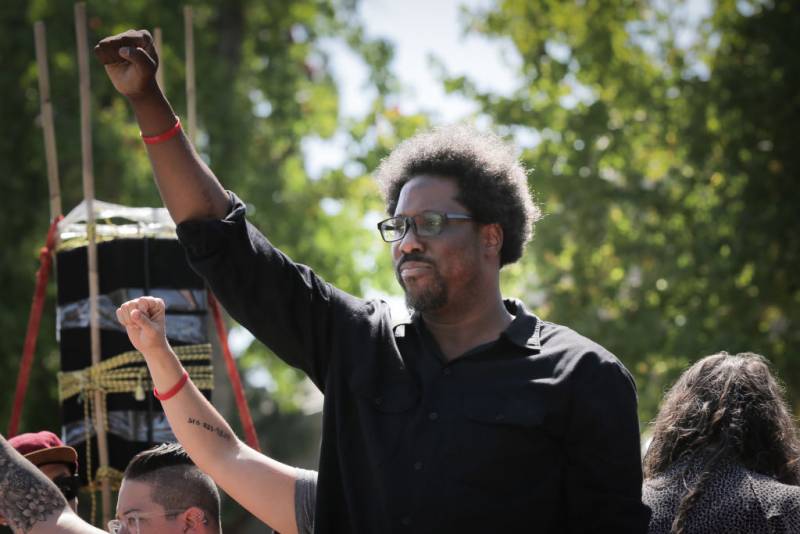Had it been a group of Black and brown people, many argue, the response from law enforcement might have been just a tad different. They point to the aggressive show of force by police during many of the largely peaceful Black Lives Matter demonstrations this summer — just one of many examples in a long history of police violence against people of color peacefully protesting for racial justice.
On Thursday morning, as the nation was still trying to come to grips with the riots, KQED's Brian Watt spoke with the Bay Area's own W. Kamau Bell — comedian and the host and executive producer of the award-winning series "United Shades of America" on CNN — about this attack on the nation's capital, white supremacy and terrorism, and where America goes from here.
The interview has been edited for length and clarity.
What do you make of that difference in the law enforcement response?
W. Kamau Bell: I mean, it's everything that as a Black person you know is true in this country.
All year, since the pandemic started, we have seen white people armed to the teeth, showing up at capitals all over the country. And all of that was a rehearsal for this. If they hadn't gotten away with showing up in Michigan and Sacramento and all these other capitals around the country, they would have been less interested in going to D.C.
And then on top of that, you have the fact that the president has, since the George Floyd protests, been going after Black Lives Matter, going after Antifa — and yet with these people, he basically put out an Evite and invited them to the Capitol, and then he talked to them once they got there.
So I'm not surprised they weren't arrested, because they were where they were supposed to be. They were invited to a party and they went to the party.
